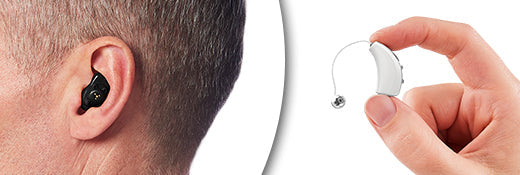The idea of adapting to hearing aids can feel overwhelming at first. A lot of doubts creep in like, “Will I be comfortable wearing them?” “Will they really help?” “What if it’s just a waste of money?” But with the right support and encouragement from family, the journey can become not only manageable but truly rewarding.
One story that remains clearly etched in my mind is that of Mrs. Kaur
About a year ago, Mrs. Kaur came to the clinic with misty eyes and a heavy heart. Having lost her husband just a few months earlier, she was grieving deeply. She barely engaged in conversations and seemed emotionally withdrawn. Although she had been living with hearing loss for over two years, she never felt the need to use hearing aids.
She handed me her old hearing test reports and said, “Yes, I have a hearing loss. I can’t follow conversations anymore, but I don’t think I need a device. I don’t want to talk to anyone. I’m okay being alone.”
But her son saw things differently.
He had been gently urging her to use hearing aids as he was afraid that her withdrawal from communication would lead to complete isolation and possibly depression. I performed a hearing evaluation and programmed a pair of hearing aids for her. As soon as she put them on, the resistance began. Before I could respond, her son stepped in.
He had done his research. He answered every question she had, addressed her concerns with patience, and turned to me only when he needed guidance. At the end of the appointment, he took the hearing aids home for a trial and said, “I just need a little more time to convince her.”
When they returned for the follow-up, everything had changed.
Mrs. Kaur walked in wearing the demo hearing aids and ready to get a new pair!
During the home trial, her son had supported her every step of the way. He encouraged her to visit the park and reconnect with her friends. He made her watch her favourite TV shows again. He helped her navigate the hearing aid app on her phone, patiently assisted her in putting the devices on, and subtly reminded her that she could even hear when the he spoke at a low volume. Slowly, the resistance began to fade away.
Stories like Mrs. Kaur’s are a beautiful reminder of how powerful support can be. The only reason she chose to wear hearing aids was because her son stood beside her throughout the journey. He held her hand and helped her choose what was best for her.
Hearing loss is closely linked to cognitive decline and depression. With the weight of recent grief, Mrs. Kaur was vulnerable to slipping further into isolation. But her son refused to let that happen. He became the reason she found her way back. Hearing aids seem daunting at first. For many parents and grandparents shifting to a new phone seems difficult initially. Similarly, a new hearing aid poses the same challenge if not more. So, they need a little handholding to feel comfortable with the new technology.
This is the kind of support that truly matters.

